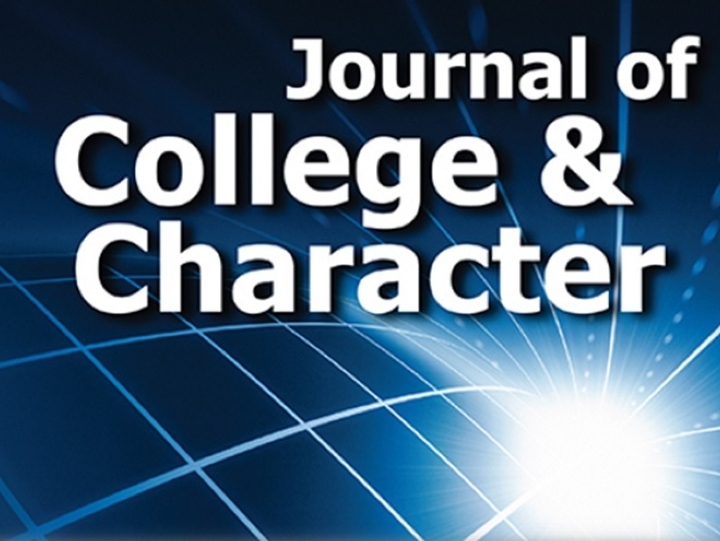
Questions Relating to Moral Development: JCC, August 2022
August 10, 2022
JCC Connextions, Volume 8, No. 3, August 2022
Here are some important questions relating to moral development that are explored in articles in the August 2022 issue (vol. 23, no. 3) of the Journal of College and Character:
1. What types of goals do most college students pursue?
What College Students Are After and Why
Anne Colby, Heather Malin, and Emily Morton
Authors asked 1,500 students from 11 U.S. cfolleges to write about their goals, the reasons their goals were important, and how they were pursuing those goals. Most articulated goals of self-actualization, meaning, and contribution to their chosen fields and to the common good. Read the article.
2. What is the role of social media in the transition to college, and how does its use influence a sense of belonging?
“Am I Even Going to Be Well-Liked in Person?”: First-Year Students’ Social Media Use, Sense of Belonging, and Mental Health
Michael J. Stebleton, Lisa S. Kaler, and Charlie Potts
Because social media interaction represents a primary means of communication for students, researchers must understand the effects of social media on college students’ sense of belonging, identity, and mental health.This study explores the intersection of social media use, mental health, and sense of belonging among first-year students at a large, public university to shed light on the role of social media in the transition to college and the potentialimpacts on sense of belonging and mental health. Read the article.
3. Do underrepresented groups face harsh disciplinary sanctions in higher education?
Disparities in Student Misconduct in Higher Education for Students From Underrepresented Racial Backgrounds or
Non-Citizen Visa Status
Anne Nyx Robey, Rory Dunn, Natoya Haskins, and Cheryl Dickter.
The authors analyzed 4,761 disciplinary cases over seven years to determine if race, sex, or citizenships played a predictive role in severity of charge and sanction at a predominantly White institution. Read the article.
4. What are some contemporary practices used in the formation of civic-minded young adults?
Preparing the Civic-Minded Graduate: A Way Forward
Mackenzi Huyser, Donald DeGraaf, and Rebecca Burwell
Authors explored how the formation of civic-minded college graduates has shifted in recent decades. They preliminary research from a group of undergraduate college students engaged in an urban, experiential education program and explores opportunities for utilizing academic-based internships in developing civic-minded graduates. Read the article.
5. Is Religion a Benefit or a Liability for Student Athletes?
Religion: Coping or Cost for Student-Athletes?
Jessie N. Stapleton and Rebecca Crandall
Authors examined the relationship among religious commitment, social support, and burnout among student-athletes at a religiously affiliated institution. Findings suggest both religious commitment and social support were significant predictors of athlete burnouty. Read the article.
6. How can religious identiy and diversity curricula in health fields improve patient care and health equity?
Leveraging the Power of Religious Diversity in Health Fields
Carolyn Roncolato
Despite its relevance, most health field professionals are not adequately prepared to engage the religious diversity they encounter. The author explores how religious identity and diversity curricula in health fields programs can ultimately improve patient care and health equity. Read the article.